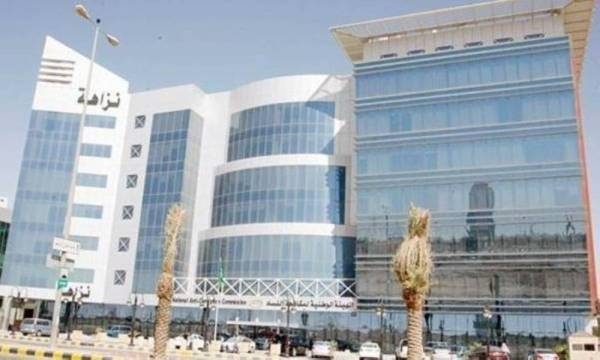Officials from the Oversight and Anti-Corruption Authority (Nazaha) have recently made a significant arrest in Riyadh. Saad Ibrahim Al-Yousef, a retired colonel from the Presidency of State Security, was caught receiving a check worth SR30 million as part of a promised SR100 million bribe. This bribe was intended to secure the closure of a pending financial and administrative corruption case involving a businessman, using information Al-Yousef had access to during his previous tenure in office. Al-Yousef was assisted by a Yemeni resident, Amnah Mohammed Ali Abdullah, who claimed to hold a government position and to be a member of a ruling family in one of the Gulf States. Abdullah even forged a letter, falsely including a royal order, to deceive the businessman and bolster their false claims.
In addition to these illegal activities, the group consisting of Al-Yousef, Abdullah, a Syrian resident Mohammed Saleem Atfah, and a Sudanese resident Adel Najm Aldeen, collected SR80 million from citizens by pretending to invest the funds in state projects. However, they used the money to purchase real estate both inside and outside the Kingdom, and valuable items, which they then smuggled out of the country. As a result of their criminal actions, all individuals involved have been arrested, and legal proceedings are currently underway. Nazaha has reiterated its commitment to pursuing anyone who exploits public office for personal gain or to harm the public interest, emphasizing their zero-tolerance policy towards corruption.
This case shines a light on the pervasive issue of corruption in both the public and private sectors. The misuse of public office for personal gain not only undermines the public’s trust in government institutions but also has far-reaching negative consequences on society and the economy as a whole. The actions of Al-Yousef and his accomplices demonstrate the need for stringent measures to combat corruption and hold those responsible accountable for their actions.
Corruption is a global issue that affects all countries, regardless of their level of development. It distorts markets, stifles economic growth, and erodes the rule of law. In Saudi Arabia, the government has taken significant steps to combat corruption and promote transparency and accountability. The establishment of Nazaha and other anti-corruption agencies is a clear indication of the government’s commitment to root out corruption at all levels.
The recent arrest of Saad Ibrahim Al-Yousef and his accomplices is a testament to the effectiveness of these anti-corruption measures. By apprehending individuals who abuse their positions of power for personal gain, the authorities are sending a strong message that corruption will not be tolerated in the Kingdom. This case serves as a warning to others who may be tempted to engage in corrupt practices, that they will face severe consequences for their actions.
In conclusion, the arrest of Saad Ibrahim Al-Yousef and his co-conspirators is a significant victory in the fight against corruption in Saudi Arabia. It underscores the government’s unwavering commitment to upholding the rule of law and protecting public funds from abuse. As the legal proceedings continue, it is hoped that justice will be served, and those responsible will be held accountable for their actions. The public can take solace in knowing that the authorities are actively working to root out corruption and ensure that public officials act in the best interests of the country and its citizens.











